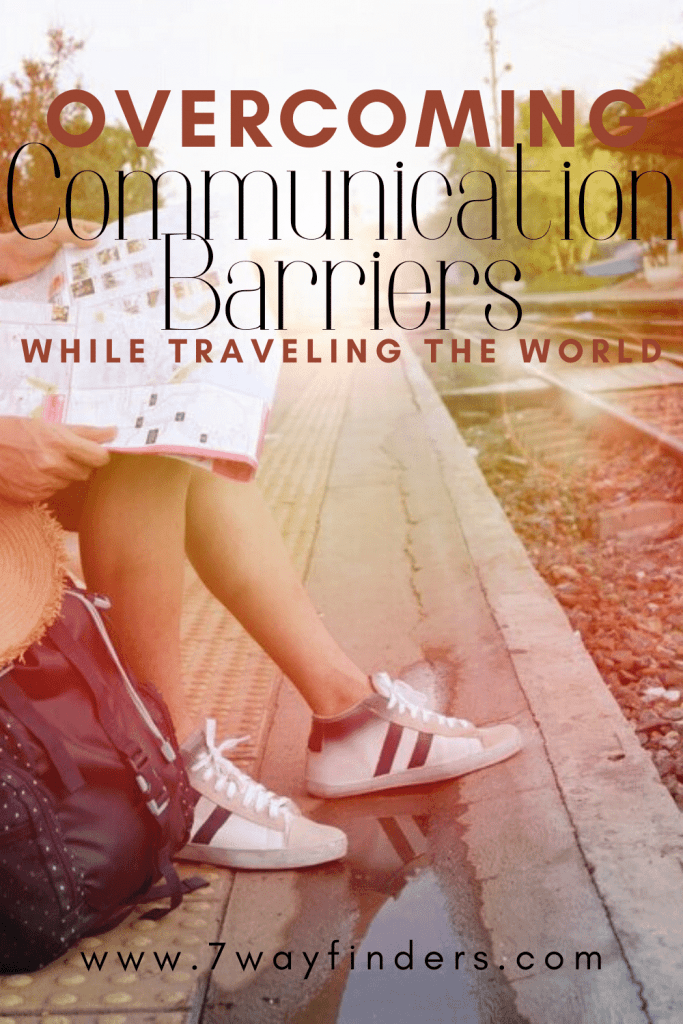


Are you worried about traveling abroad without speaking the language of that country? Communication and language barriers are one of the reasons why some people do not want to travel abroad. It is said that tourism helps enhance your awareness of the cultures and languages of other countries all over the world. But you can’t learn a language every time you go to a new country.
Communication is important, especially when you’re in a new country because it will help you explore your surroundings, shop, and take advantage of services. How can you communicate with locals when they don’t speak the language you know?
One of the most common advice is to learn common phrases and words before traveling. Or you can take advantage of many free online translation tools to help you use the local language. Moreover, most popular tourist destinations have English-speaking staff.
Even if you don’t know the local language, keep in mind that there are “other languages” that you can use. Be prepared to use nonverbal communication.
These following tips can help you a lot, so you’ll have a more enjoyable holiday despite the language barriers.

1. Point To The Things You Care About.
Pointing to something you care about is more effective than speaking. It is also a very simple gesture to convey the message quickly. For example, the menu often has images of foods that the restaurant serves. You can also point to items in the store or other destinations on the map so you can buy or go to tourist destinations. Locals are often very friendly, so don’t be afraid to approach them for help.
Note: It is important to note that you should observe what you should and should not do about pointing at something and use your fingers when pointing at people and objects. In Bulgaria, shaking your head means “yes” while nodding means “no”. This is the opposite in the United States and other countries. Or, some countries are fine when using an index finger to point at something, but other countries use the whole hand to point at something or someone.
2. Download The Map Application And Activate GPS On Your Phone.
Although the Internet is popular in many travel destinations, you may be in areas without Wi-Fi. What you need to do is to download a map of the places on your itinerary and store them on your phone. Even if GPS doesn’t work because there’s no Internet, you can still navigate around because you have an offline map with a language you understand.
3. Don’t Forget To Be Polite
Even if you have a good understanding of the customs and traditions of the country you are visiting, you can still make some small mistakes. No matter how much you prepare, there will be situations where you may not know what to do or say. The only thing you need to do is be polite.
Being polite can help you to handle stressful situations. The locals, even if you don’t know the language, will be polite and give you a warm smile. It is better to learn how to speak the following basic sentence patterns in their language: Thank you, Please, I am sorry, etc.
Don’t forget the general greetings, including Good morning, Good afternoon, Good evening, Good night, Goodbye, and See you again.
Also, remember to always smile warmly at the people around you because this is the simplest way to make a good impression in people’s hearts. Also, this action allows you to make new friends.
4. Ask The Locals For Directions
If you are a country where English is not the main language and you want to ask something, you should ask young people because their English can be better than older people. Also, if you want to get directions faster, you can visit any hotel or restaurant, surely the staff here can help you.
5. Learn Culture
Even if the language is too difficult to learn, you need to know something about the culture of that country. Each country has its customs and traditions that local people expect foreigners to understand and respect. You will not make mistakes when you have understood them, such as eating time, touching others, patting the head, wearing appropriate clothes, etc. For example, you need to know how to bow in Japan.
6. Bring The Map In The Local Language
Often, the hotel reception will give you a map of where you go. You should circle or mark the places you plan to visit. This is simple but it helps you save more time to get the destination. And unfortunately, if you get lost, the locals are also easier to help.
You can also use your smartphone to take pictures of intersections, buildings, and signs in the route you go through to help you relive your path. It also helps you a lot if you, unfortunately, get lost.
7. Find Natives Who Want To Practice English
If you are looking for native people who can speak English, you should go to universities, colleges or souvenir shops. They will be happy to help you.
Author bio:
I am Nina Nguyen. I was born in Vietnam – a country with many unknown beaches, historic sites, and tourist attractions. Understanding that Vietnam nowadays is a famous destination, I establish the blog site vina.com to introduce the elegant beauty of Vietnam to friends around the world. If you are planning a trip to Vietnam, our blog will provide you with essential information on where to go and what to do in our country.


